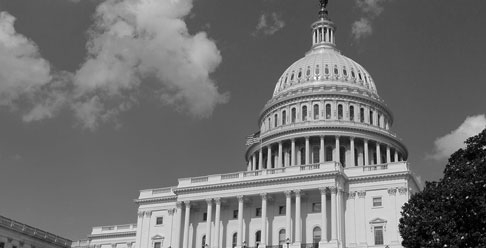Have you been hurt by someone’s negligence? The team at Fowler Pickert Eisenmenger Norfleet is ready to help. We’re very familiar with Missouri negligence and personal injury laws and we understand exactly what it takes to win a case like this.
Have You Been Injured In Kansas City, Missouri? You Should Speak With An Experienced Kansas City Personal Injury Lawyer.
If you've been injured in the Kansas City area you should speak with an experienced personal injury lawyer as soon as possible. Please feel free to contact us online or call our office directly at 816.832.4688 to schedule your free consultation. We are proud to serve Kansas City, Missouri and the surrounding area and look forward to speaking with you.
 Medical Malpractice
Medical Malpractice
Medical professionals are obligated to provide proper care for their patients, and when they don’t meet that duty, people can suffer. If you or someone in your family received improper care from a health care provider, our medical malpractice attorneys are prepared to investigate your case and fight for your legal rights.
 Car Accidents
Car Accidents
Regardless of who was at fault in a car accident, you’ll want legal representation if you’ve been involved in one. Fowler Pickert Eisenmenger Norfleet has experience representing car crash victims and is ready to help you navigate the complicated and stressful days after a vehicle wreck. We’ll take on the insurance company to help you get the compensation you deserve.
 Truck Accidents
Truck Accidents
Large trucks are on the roads every day and have the potential to be deadly. A truck accident can also lead to a significant loss of income. If you’ve been injured in a truck accident, you’ll need the services of a knowledgeable Kansas City truck accident attorney in Missouri. Fowler Pickert Eisenmenger Norfleet has handled all types of Missouri truck accident cases and can help protect your right to compensation.
Child Injury
Injuries to children can be very serious and have devastating impacts. If your child's injury was caused by the negligence of another party, you may be entitled to compensation. Our Kansas City child injury attorney team will advocate for your child with compassion to help your family receive the compensation that you deserve.
 Motorcycle Accidents
Motorcycle Accidents
Motorcycles are less stable than cars due to their two-wheel structure, and because they are open-air vehicles, the potential for injury in an accident is far more likely. Contact our Kansas City motorcycle accident lawyers for a free case evaluation.
 Bicycle Accidents
Bicycle Accidents
Bicyclists who are struck by cars can sustain serious injuries, and it doesn’t take much. Speeds as low as 10 miles per hour can result in injuries with long-lasting, even permanent, consequences. In these cases, a Kansas City bike accident attorney can help recover damages.
 Serious Injuries
Serious Injuries
Life can change in an instant. An accident caused by another party’s negligence can leave you with physical and emotional scars, as well as concern for what the future may hold. Our attorneys can help you hold the responsible party accountable and fight for fair compensation for your injuries.
 Wrongful Death
Wrongful Death
Wrongful death occurs when a life is taken because of negligence or willful act by another person. These lawsuits differ from murder cases because they are filed in civil court, usually for financial compensation. A person may be acquitted of a murder or manslaughter charge in criminal court, but be found guilty in a wrongful death suit. If you have lost a loved one as a result of the negligent actions of someone else, contact Fowler Pickert Eisenmenger Norfleet today.
 Federal Tort Claims
Federal Tort Claims
Personal injury and wrongful death are eligible for coverage under the Federal Tort Claims Act (FTCA), but within that broad purview are several restrictions and provisions. Seeking the guidance of an experienced Kansas City Federal Tort Claim attorney who is knowledgeable about the act and its application in your state is the best course of action.
 Premises Liablity
Premises Liablity
When a personal injury case is caused by a type of unsafe environment or defective condition on someone’s residential or commercial property, it is typically referred to as a premises liability lawsuit. If you are involved in such a case, the Kansas City, Missouri premises liability lawyers at Fowler Pickert Eisenmenger Norfleet can help.
 Product Liability
Product Liability
As a consumer, you have certain rights afforded to you. First and foremost, you have the right to safety and protection regarding the products and services you purchase. However, big businesses and corporations don’t always look out for the best interests of their customers. If you are in need of legal counsel for a product liability case in Kansas City, Missouri, contact the product liability attorneys at Fowler Pickert Eisenmenger Norfleet for a free consultation.
 Dog Bite Accidents
Dog Bite Accidents
Most of us take proper care of our pets and would never give them a reason to bite, but others don’t dedicate the same training, care, and devotion to their animals. Some let their dogs run around public places without a leash, don’t properly contain them in yards, or even fall behind on vaccination schedules. When dogs are neglected or mistreated, they can become aggressive and prone to biting other humans or pets. The Kansas City dog bite attorneys at Fowler Pickert Eisenmenger Norfleet can help guide you through the legal process after a dog bite injury in Missouri.
